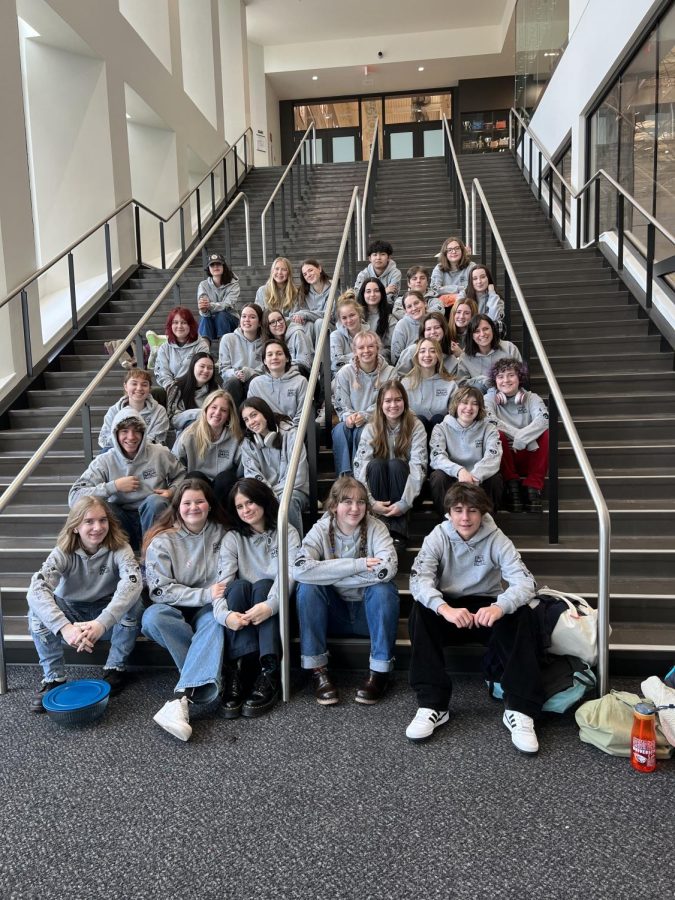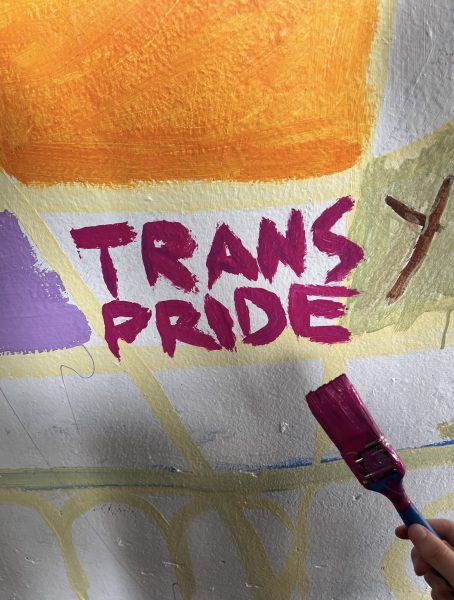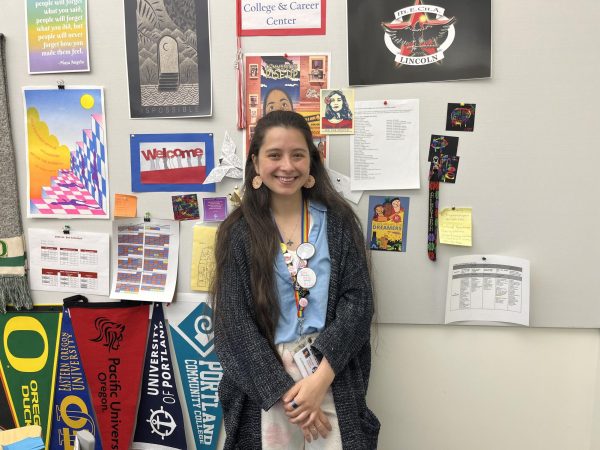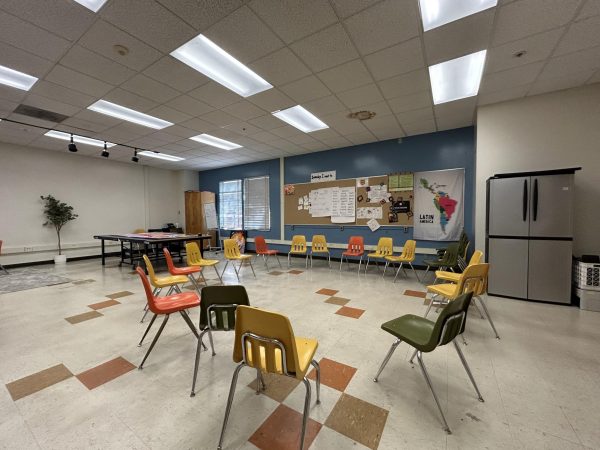The underrepresentation of gender in Lincoln classes
Students of the future educator CTE program gather on the stairs. The class is comprised of 81% female-identifying students.
At Lincoln, some teachers and students alike feel that culturally embedded views of gender are reflected in the underrepresentation of gender identity in certain Lincoln courses.
An examination of a school-wide report of gender enrollment within Lincoln classes reveals courses such as computer science, audio engineering, robotics and strength and conditioning are represented by predominantly male-identifying students. Classes such as theatre, visual arts and intro to education are comprised of mostly female-identifying students.
Blair Hennessy, who teaches the future educator CTE class, feels that students are more likely to be interested in a subject or potential career path if they feel their identity is being reflected.
¨In Oregon, I think almost 80% of teachers are white women,¨ said Hennessy. ¨I think that young women have seen themselves reflected in their own building. They’ve had probably all female teachers in elementary school so they got the message that they can be teachers too.¨
Junior Mathias Clift feels that a lot more male-identifying students would pursue education as a career path if they had more positive experiences with male educators.
¨One of the reasons why I decided to go into education was because I had the privilege to have a teacher who was a man that had a really big impact on my life,¨ said Clift.
For students, not feeling visible in a classroom can push them from pursuing the content of a given course.
Junior Hailey Crews took computer science her sophomore year; it’s a class that is made up of about 86% male students. Crews thinks that female-identifying students tend to feel less comfortable in their environment if they are in a male-dominated space.
¨I’ve noticed that when you want to go into a field, it’s good to have people who reflect and encourage you,¨ said Crews. ¨If you don’t see yourself in your class you may not be particularly motivated or drawn to pursue it.¨
Fighting against the underrepresentation of women in STEM courses, teacher Ranjani Krishnan is working to make computer science at Lincoln a welcoming space for students who wouldn’t traditionally take the class.
¨There is this structural piece; there are cultural biases and prejudices that we’re working against,¨ said Krishnan. ¨I think it does create a much richer experience when we have a class bustling with diversity by all parameters.¨











